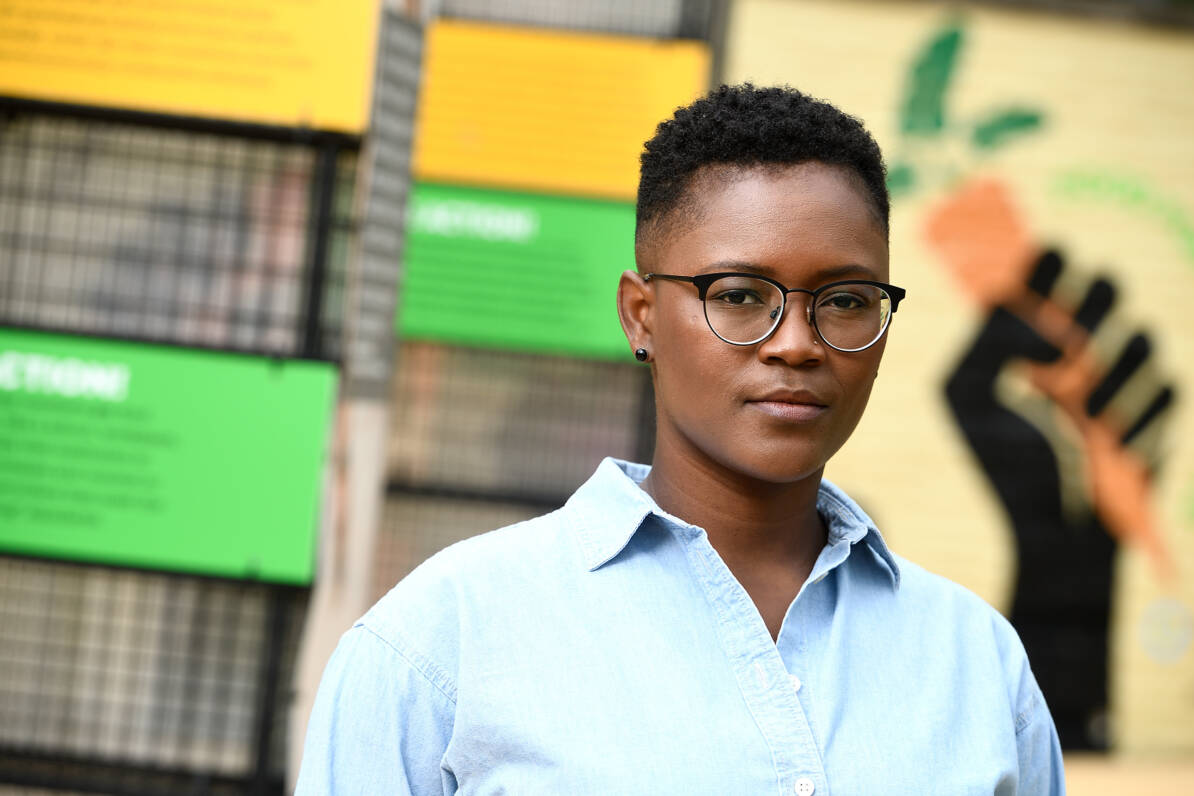
“Food is one of the most intimate ways that we interact with the environment on a daily basis. And food access is a critical issue.”
- Name
- Dominique
- Title
- Graduate Student
- Divisions
-
- Krieger School of Arts and Sciences
As a high school student, Dominique Hazzard turned to environmental activism. As an undergraduate student, she began researching and community organizing around food concerns. And as a PhD candidate at Hopkins, she took that research into an interactive public forum as a junior curator for an award-winning exhibition at the Smithsonian’s Anacostia Community Museum called “Food for the People: Eating and Activism in Greater Washington."
With a background in working for nonprofit organizations, and having experienced food apartheid in her younger years, Hazzard entered the History PhD program at Hopkins with a passion for food access. Her research led her to explore the origins of the grocery gap in Washington, D.C., and she found similarities between the food access issues of the 1960s and those of today—calling today’s activism the “second wave.”
"We are using a lot of the same strategies [as prior generations], whether it's protest, policy, or building alternatives like cooperative grocery stores and Black-owned businesses," Hazzard says. "There are a lot of similar solutions taking shape,”
Food justice is intimately connected to racial and environmental justice. The 2022 exhibition highlighted the vital roles farm workers and food service workers play in our food system, while decrying the unjust working conditions they endure and how both groups have been strategically denied fair labor protections. Throughout, the exhibition traced these contemporary labor practices to the legacies of slavery and Jim Crow. Hazzard’s own work was featured in the exhibition, and she was able to see her own organizing efforts as part of the interconnected web of food justice history and its future.
Also see: Craving change (The Hub, April 2022)







